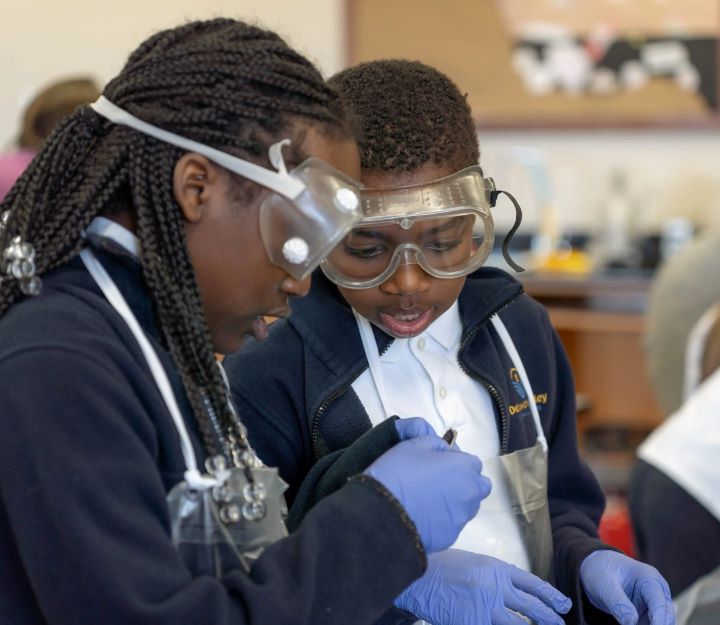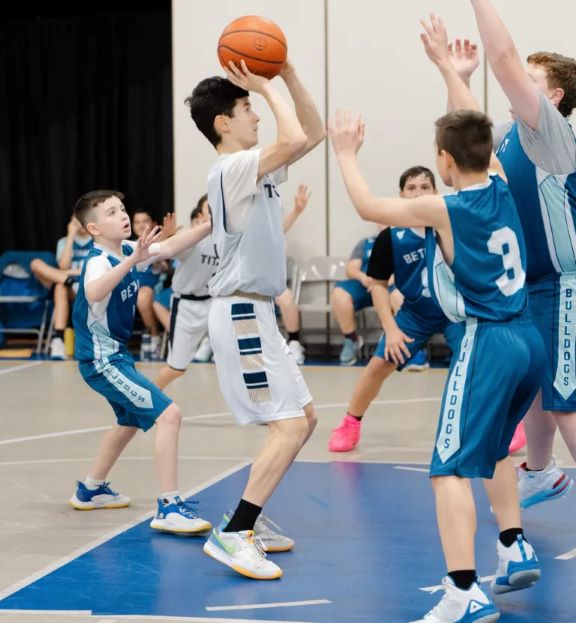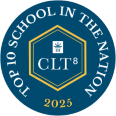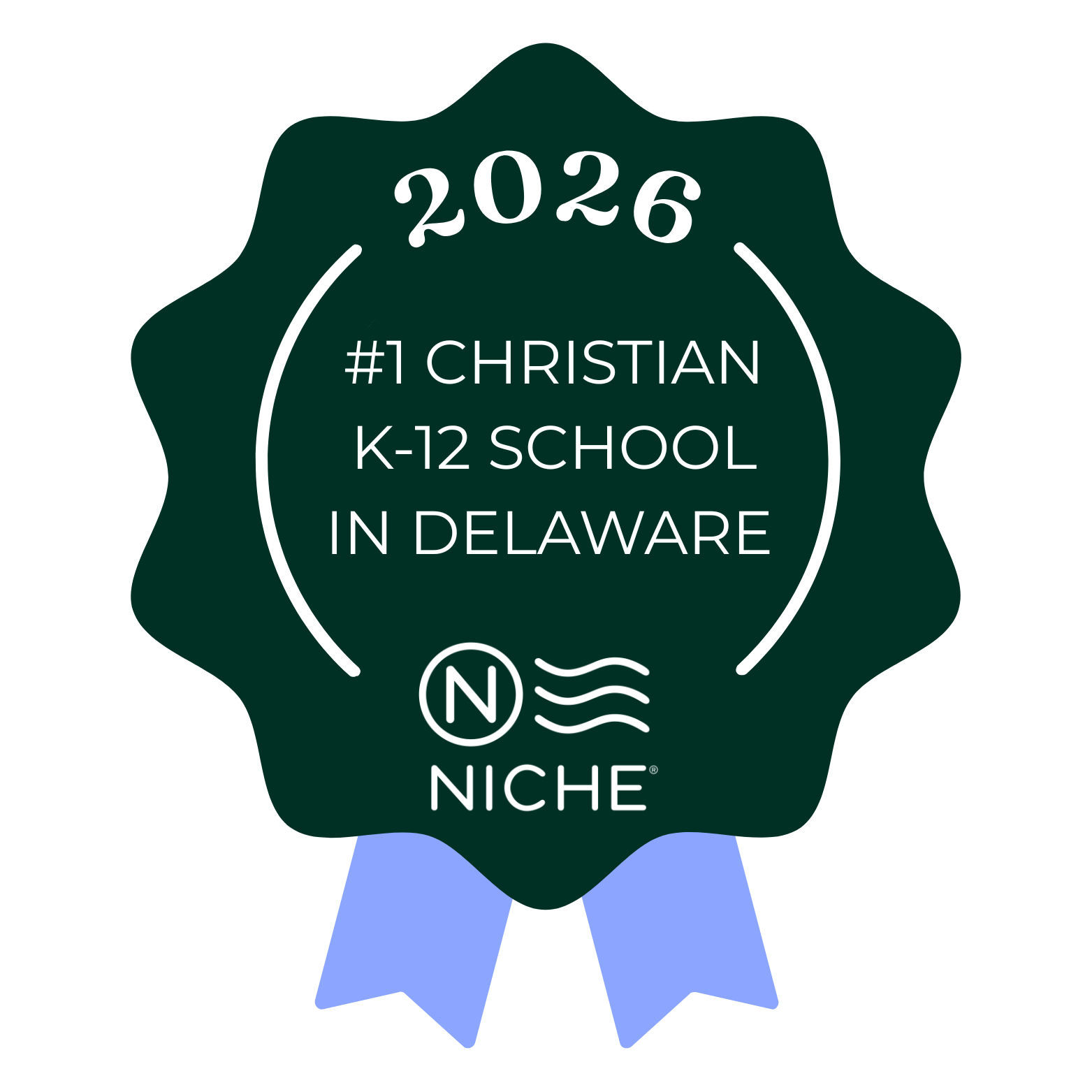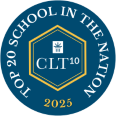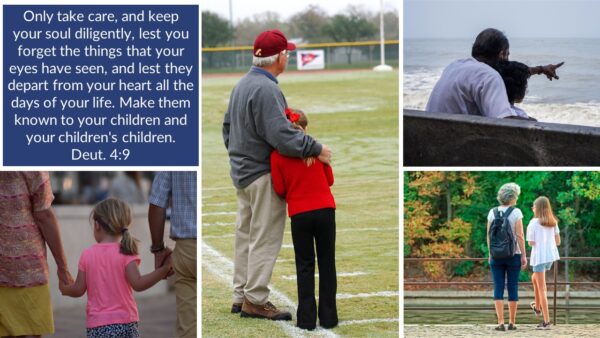 Grandparents Day is a wonderful opportunity to reflect on our mission statement—especially because grandparents play an important role in helping us fulfill that mission. A mission statement is the true north star for why an institution exists. In the case of Delaware Valley Classical School, it sets the standard by which we measure everything we undertake at this school.
Grandparents Day is a wonderful opportunity to reflect on our mission statement—especially because grandparents play an important role in helping us fulfill that mission. A mission statement is the true north star for why an institution exists. In the case of Delaware Valley Classical School, it sets the standard by which we measure everything we undertake at this school.
In fact, some grandparents may even have informal mission statements—something brainstormed over a cup of coffee upon entering grandparenthood. Maybe it was something like, “I resolve to be involved in the lives of my grandchildren and to teach them all the wisdom I’ve gained over the years.” Or perhaps, “I resolve to be a better grandparent than mine —who, unfortunately, were far too conservative with their candy and toy provisions.”
Don’t miss the point, however. Mission is vital. Without it, you have no idea what you’re aiming at. Grandparents have a vested interest in our mission—because it so deeply impacts their grandchildren, by God’s grace, for their good.
Hear the DVCS mission statement:
The mission of Delaware Valley Classical School is to assist parents in preparing their children to excel in every duty and calling God has for them by providing a classical and Christ-centered curriculum designed to equip graduates with the tools to acquire, process, express, and defend knowledge from a biblical worldview.
Let’s focus on three major parts of that mission statement.
- Assisting parents
- Preparing children to excel in every duty and calling God has for them
- Equipping graduates with tools to acquire, process, express, and defend knowledge
Assisting Parents
Deuteronomy 11:19 says, “You shall teach them to your children, talking of them when you are sitting in your house, and when you are walking by the way, and when you lie down, and when you rise.”
There is a clear biblical mandate that parents are responsible for teaching their children God’s commands. But what about reading, writing, arithmetic, and everything else? That responsibility may seem more ambiguous, but we believe it still falls under the broader duty of raising children in wisdom and truth.
The ancient Greeks were convinced that education and culture were embedded in literature—the highest expression of culture. They understood that education was ultimately about shaping individuals in the image of their community, one that shared a set of norms.
With the invention of the Gutenberg Press and the Protestant Reformation’s emphasis on Scripture in the common tongue, reading became a spiritual necessity. Later, especially in the late 19th and early 20th centuries, state-mandated education became the norm. But still, parents remain the primary authorities over their children.
So we assist them in the task of educating and rearing their children in the vision of the good life laid out for us in Scripture.
Being an educated Christian is vital to living out the faith. Christians are people of the Word, the Logos, and we believe God created all things. Therefore, understanding how creation works is not just academic—it’s spiritual. It makes us humble, as we come to see how infinite God’s wisdom is, and it helps us become more fully human.
That is our role: to come alongside parents and help them along this path.
Preparing Children to Excel in Every Duty and Calling God Has for Them
This part of the mission statement includes two key ideas: duties and callings. Let’s start with callings.
Discerning a calling is important. The modern world offers endless options, and the common question, “What do you want to do when you grow up?” can often cause more confusion than clarity. If I can be anything, how do I choose something?
Calling should bring clarity, not confusion. But culturally, we often romanticize callings because they seem mysterious or exciting. We wait for God to reveal that one perfect vocation—doctor, lawyer, missionary, pastor, electrician, plumber.
But duties—those are more mundane, yet no less important.
Duties are usually clear and immediate: love God and neighbor, speak kindly, show self-control, arrive on time, don’t call out in class, don’t disrupt others’ learning. They’re the daily work of the Christian life. Think of them as the operating system—Windows for a PC, macOS for a Mac—running in the background, making everything else function well.
Duties are what carry us through when feelings falter. Worshiping on Sundays even when we don’t feel like it. Staying faithful to a spouse even when it’s hard. Praying when we’re discouraged. These are duties—not always exciting, but essential.
Both duties and callings will interplay in a child’s life. But without focusing on the “God has for them” part, it’s easy to confuse the two or pursue paths that are not aligned with God’s will.
Equipping Graduates with the Tools to Acquire, Process, Express, and Defend Knowledge
This part of our mission is both qualitative and quantitative.
There’s a myth in modern education that schools exist to simply pour knowledge into students until they turn 18. The assumption is that school is only about information transfer.
But our mission says something else.
We want to equip students with the tools to acquire, process, express, and defend knowledge—tools that will serve them far beyond their years at DVCS.
And this is far more difficult than merely conveying facts. It requires full involvement of the student .
- Students recall 20% of what they hear
- 50% of what they hear and see
- And 70% of what they say and write
We cannot teach students everything. But thanks to the beauty of the trivium, we don’t need to. Instead, we teach them the skills and tools that will serve them in—again—every duty and calling God has for them.
As the saying goes: “Give a man a fish, feed him for a day. Teach a man to fish, feed him for a lifetime.”
Give a student the tools, and they can sift and evaluate knowledge through the lens of wisdom. And tools, unlike facts, have broad and long-lasting applicability.
We live in a world obsessed with progress and drowning in information. Students must be equipped with the ability to discern truth from error, think critically, and resist superficial but persuasive fads.
A well-trained mind helps balance the appetites—so that our students are not easily consumed by them.
So, assisting parents, preparing children for every duty and calling God has for them, and equipping them with tools to acquire, process, express, and defend knowledge. That is our mission—and one you get to see firsthand today, and be a part of as grandparents.
Good education is a rare commodity these days. Virtuous, intentional education—rooted in the Christian faith, and centered on excellence, wisdom, joy, and gratitude—is rarer still. Students have that at Delaware Valley Classical School!
